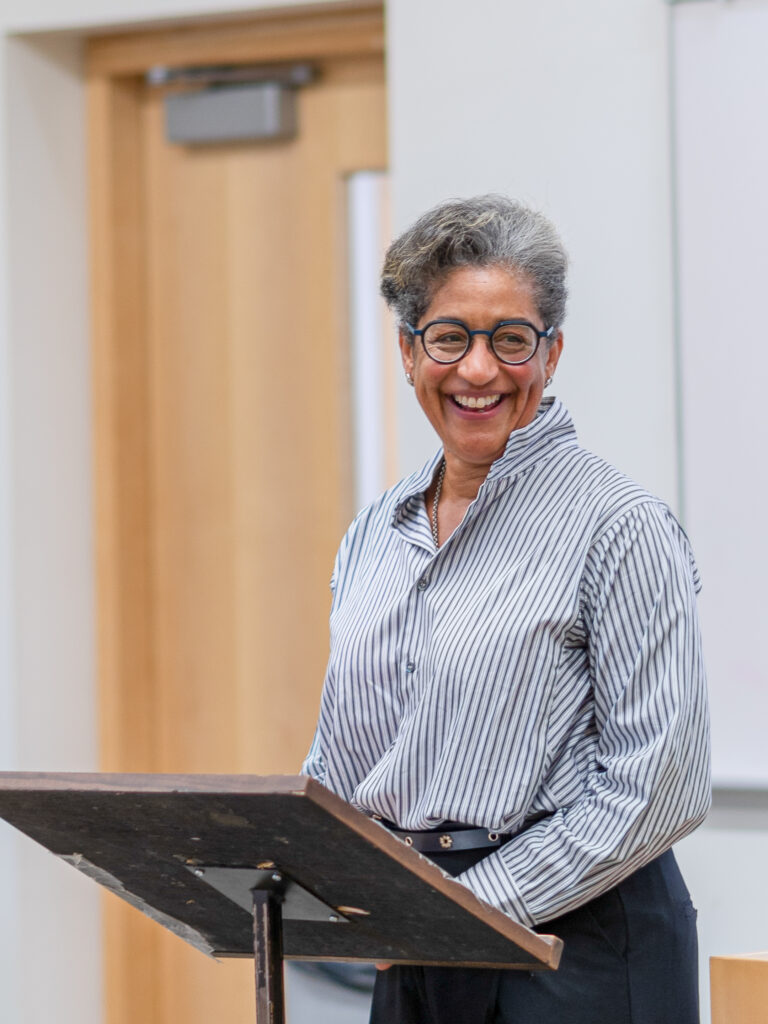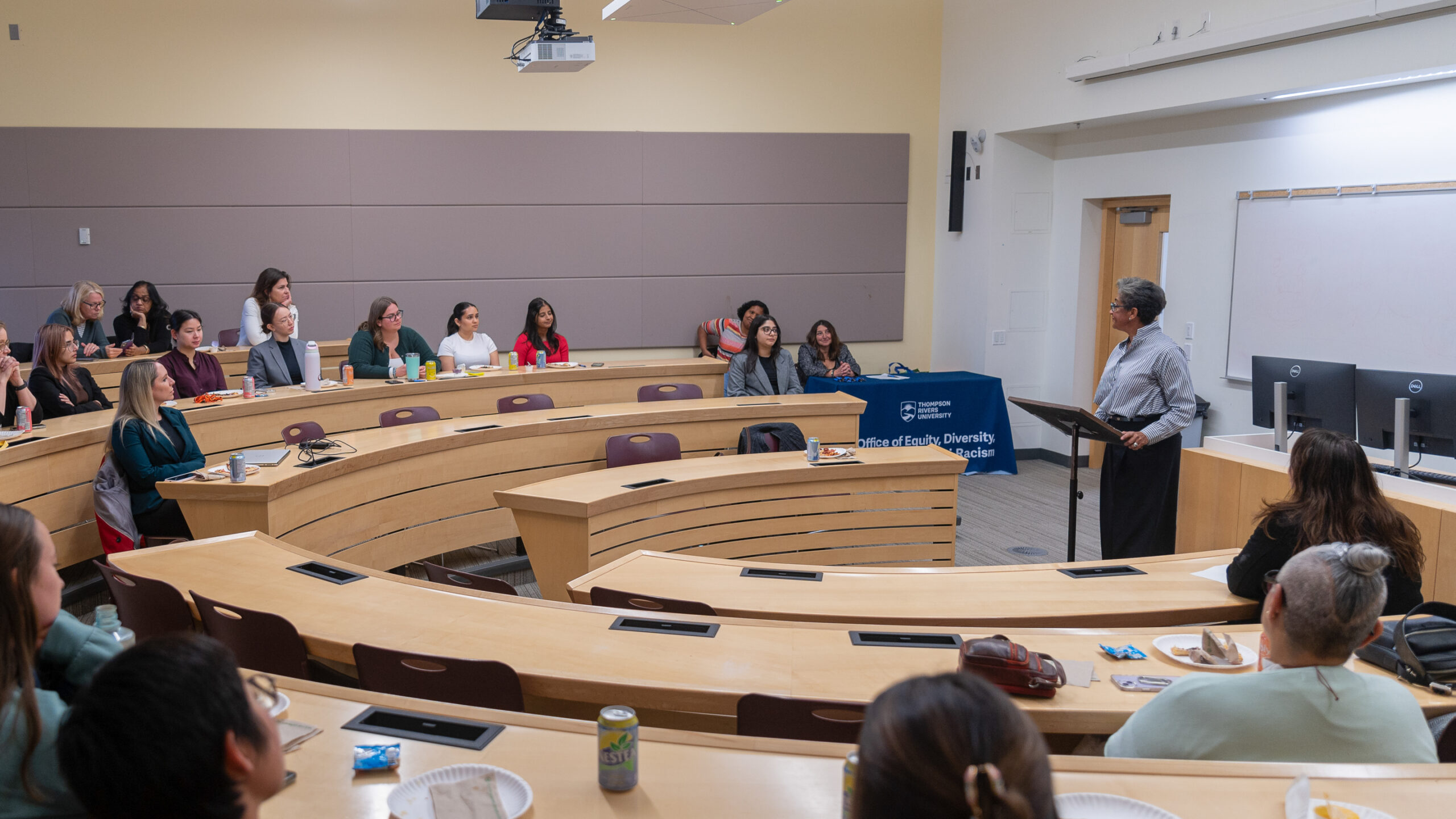As a celebration of Women’s History Month, TRU’s Office of Equity, Diversity, Inclusion, and Anti-Racism hosted Judge Michelle Stanford for a Lunch and Learn event on Oct. 18.
The Honourable Judge Stanford made history as the first Black woman to serve on the bench in Kamloops. During the Lunch and Learn event, Stanford shared the story of her career journey, which included transitioning from a nurse to an administrative and criminal defence lawyer before finally becoming a provincial court judge.
Recounting how she was raised by a single mother of Irish descent in an ethnically diverse neighbourhood in East Vancouver, Stanford emphasized the role that her mother played in shaping her values of resilience, perseverance, and strong work ethic.
“She was ahead of her time,” Stanford reflected about her mother’s determination to purchase a house during a time when women could not obtain mortgages without a male co-signer.
While Stanford initially took career advice from her mother to become a nurse, her career path took an unexpected trajectory when she met a lawyer who inspired her to pursue law.
After going to law school, multiple individuals advised her to pursue family law due to her identity as a woman. Despite people’s suggestions, Stanford instead decided to pursue a career in criminal law, a male-dominated area within the legal system at that time.
“I enjoyed being the only female criminal defence lawyer for a number of years,” Stanford said. As time passed and Stanford gained more experience, she ultimately gained a reputation for her work in defending clients with mental health conditions and substance-use-related matters.

Faizal Bukhari/The Omega
“Now, as a judge, they have to take me seriously, even though I squeak,” Stanford joked, describing how she modified her speech to project authority as a woman in law.
Stanford also touched on the significance of being a Black woman within the legal field. Growing up within an ethnically diverse but predominantly white community, she did not initially connect with her black identity for most of her life.
When Stanford entered the legal profession, she became more aware of the importance of representation. “I am living proof that if you see it, you can be it,” Stanford said, emphasizing the slow but meaningful progress in advancing diversity within the judicial system.
During a Q&A session, the Omega asked Judge Stanford what advice she would give students from underrepresented backgrounds interested in pursuing law.
“Do not be afraid and know that you belong. Don’t feel that because you come from an underprivileged background that you don’t belong—you do,” Stanford said.


She is a very interesting and inspiring individual 🙏🏾
Really inspiring!
Very insightful and thought provoking report.I enjoyed reading it